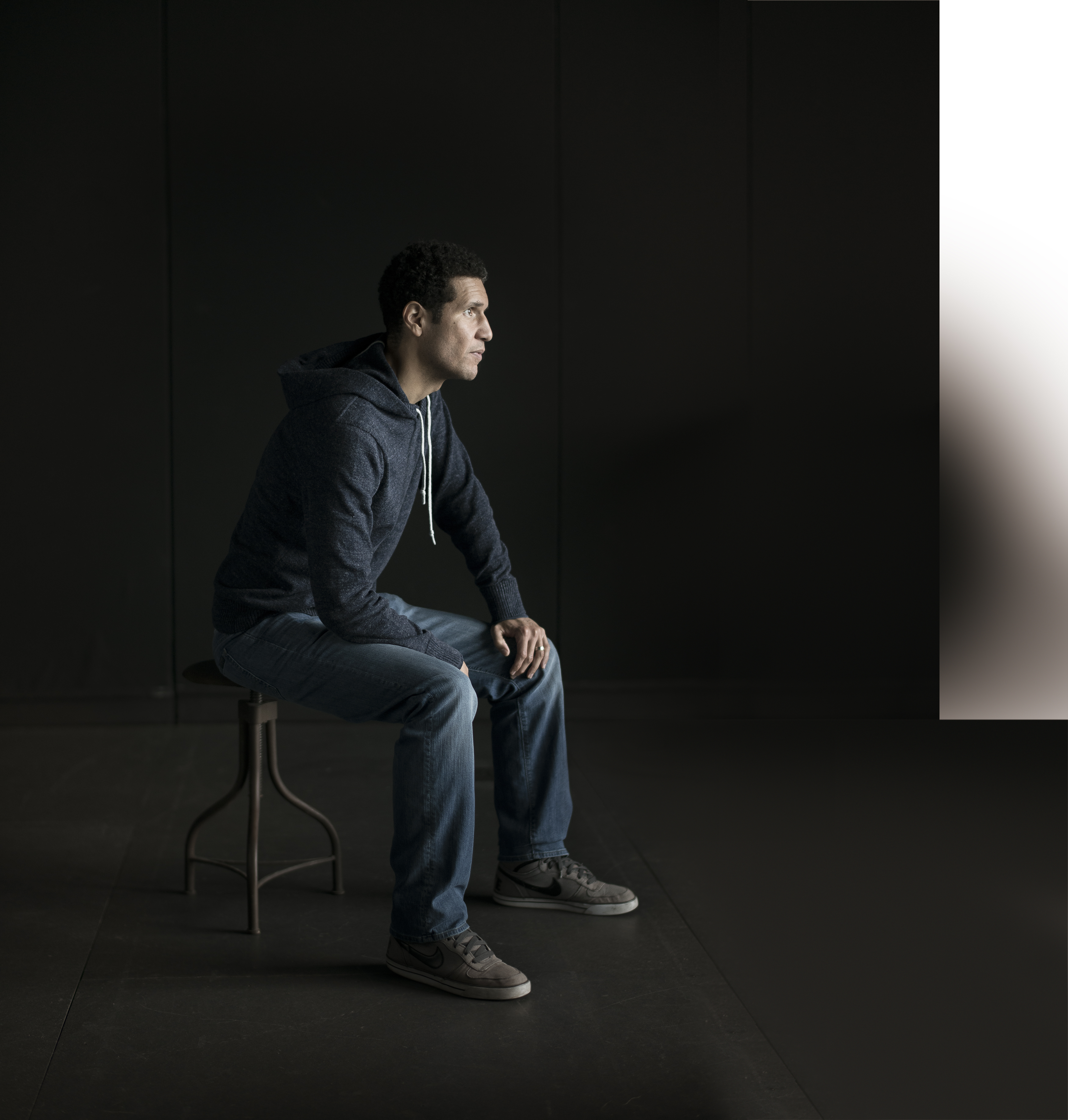Will Power sat stage right of the director as she led the 18-person cast of his new musical, Stagger Lee, through scenes. His movements punctuated the action in front of him. He leaned back, doubled over, jabbed the air, leaped up to play a riff on a pretend guitar. The plot concerns folk heroes—two couples, Billy and Delilah, Frankie and Johnny—and the enigmatic specter of Stagger Lee, who pops up as the characters attempt to make their way in the world. Raised by civil rights activists in San Francisco’s Fillmore District, Power has been called the “best verse playwright in America.” But with Stagger Lee, commissioned by the Dallas Theater Center as the group’s first fully self-produced premiere of an original musical, Power finds himself feeling more like a genre-defiant Michael Jackson than Molière.
What interested you about the story of the real Stagger Lee? It started as an African- American thing, but it became just American. When you say “Stagger Lee” to most people now, older people, they know it from the Lloyd Price song “Stagger Lee” in the ’50s. Every generation up through the 1970s had their own version. And in the ’70s, Bobby Seale, who was the head of the Black Panther Party, he started calling himself Stagger Lee. It’s this militant idea of a bad dude who didn’t take no stuff.
Was there a hard stop in the 1970s? What caused it? We did a workshop of this a year and a half ago, and everybody over 50 knew Stagger Lee. Everybody who was, like, 35 or 40 had no idea. These are theories, but one reason is because these stories migrated as African-Americans migrated. And that’s really what this piece is about. It’s about African-American migration and the search for the elusive American dream. What happens when that dream is attained, at what price, and what happens if that dream is thwarted. I don’t know what your ethnicity is—what is your ethnicity?
About as white as you can possibly get. There was a time when Eastern Europeans, Irish, Italian, were not considered white. So then there’s questions about “What is white?” A hundred years ago, the Italian ghettos were rough and also culturally rich. So some of the stuff you associate with black and Latino now, that’s what those groups went through 100 years ago. And they evolved out of that. However, what is the price? Changing your name, losing touch with some of your cultural roots. I’m not saying you should or shouldn’t; I’m saying, “What is the price?” And I think the other part is—I feel like there’s something about the hip-hop aesthetic in the new era. They became Stagger Lee in a way. They talk about the bad man, they take on the aesthetic of the bad man. The gangster rapper.
Who is your Stagger Lee? Stagger Lee is the destroyer and the protector. So he’s that bad man, but he’s also the one that if something’s going down, if the Ku Klux Klan are coming after you, you call Stagger Lee. In the folk tale he exists primarily as the bad man, but we’re trying to decodify it. It’s a deconstruction of the myth. For me, Frankie and Johnny and Stagger Lee are as close to Greek mythology as we have. The piece originally started with the idea that it would be at the turn of the century in St. Louis, because that’s where both those myths started. But then [co-composer] Justin Ellington came up with this amazing idea. He was like, “What if the story moved through time?” And I was like, “Oh, my god.” They’re not aware of it, but as they search for the American dream, they’re moving time, and they’re moving location.
Do you consider myth-making a common thread in your work? I think so. Either myth-making, or these kind of larger-than-life figures. The last piece I had, Fetch Clay, Make Man, it wasn’t necessarily mythological figures, but it’s Muhammad Ali and Stepin Fetchit. Some of my solo work earlier in my career, like Flow, was about storytellers and folk tales in the neighborhood, like, “The neighborhood is going to hell. How do we keep the stories alive?” So I think a lot of it deals with that kind of thing on some level.
Things that are huge in scope. Yeah! With a lot of stakes. Coming from this hip-hop background, I really like heightened language. Even though this piece has a traditional book, and my last piece was a so-called traditional story, I feel like the language was kind of elevated. There’s a lot of rhythms in there, and it was kind of pushing into almost stylized language.
With your background in hip-hop, was there a moment where you made the connection to theater? I started in theater as a 10-year-old actor. I was real young. And then, when I was 14, I started to do hip-hop, started to rhyme. What happened was, I started to mix those two parts of me, and then I helped to create, along with a number of other people, this hip-hop theater, this new kind of aesthetic. That was in the ’90s. So people will know my background from hip-hop and hip-hop theater, but I’ve always done both. Now, expanding it into straight plays and musicals and solo shows, it’s been great. It’s been a wild ride.
GO SEE IT:
Stagger Lee
WHEN
Jan. 21—Feb. 15
WYLY THEATRE
2400 Flora St.
214-880-0202
attpac.org
This Q&A appeared in the January issue of D Magazine. The interview was condensed and edited for clarity.





